Basic Life Support and Advanced Cardiovascular Support Courses
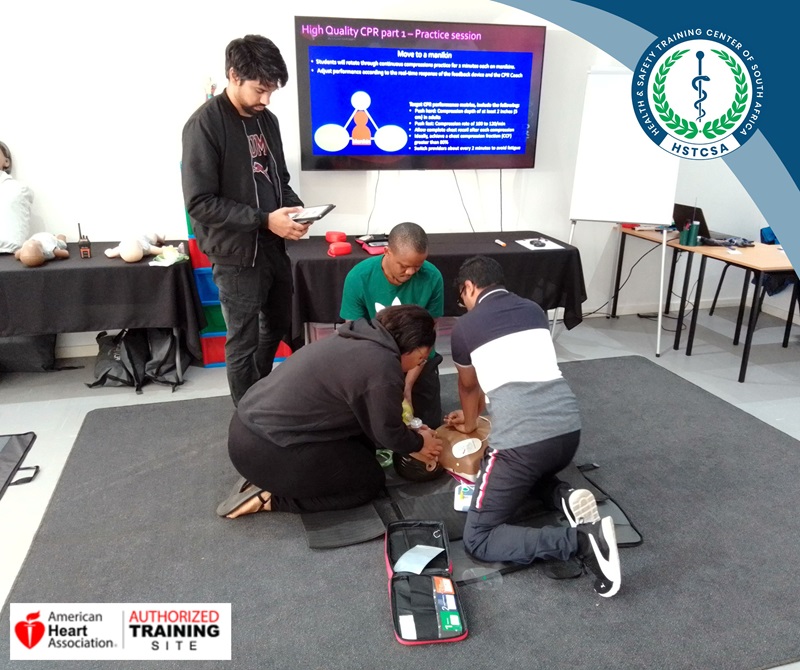
The basic life support course and advanced cardiovascular life support course offered by the Health and Safety Training Center of South Africa are designed to equip professionals with the essential skills needed to manage emergencies involving cardiac and respiratory distress.
For healthcare professionals, being prepared to respond to medical emergencies is not just a responsibility; it is a critical component of patient care. The ability to act swiftly and efficiently in life-threatening situations can significantly improve patient outcomes, making specialized training indispensable.
These courses are essential not only for maintaining proficiency in emergency response but also for those healthcare providers who need to earn Continuing Professional Development (CPD) points. With a focus on the latest guideline and techniques, this training ensures that all participants are well-prepared to handle critical situations with the highest level of competence.
Understanding Basic Life Support
The Basic Life Support (BLS) course is a foundational training program designed for healthcare professionals who may be called upon to respond to emergencies involving cardiac or respiratory arrest. This course focuses on the essential steps required to sustain life until advanced medical care can be provided. BLS is the cornerstone of emergency care, providing critical interventions that are often the difference between life and death in the crucial moments following a cardiac or respiratory event.
What the BLS Course Covers
The BLS course covers a range of life-saving techniques that every healthcare provider should master. These include:
- High-Quality CPR – Participants learn how to perform effective chest compressions and rescue breaths. Emphasis is placed on achieving the correct compression depth and rate, as well as ensuring proper chest recoil. These elements are crucial for maintaining blood flow to the brain and other vital organs.
- Use of an Automated External Defibrillator (AED) – The course includes instruction on the use of an AED, a device that can restore a normal heart rhythm in patients experiencing sudden cardiac arrest. Proper use of an AED is a critical skill, as it significantly increases the chances of survival.
- Airway Management – Participants are trained in techniques to open and maintain an airway, which is essential for effective ventilation. This includes the head-tilt, chin-lift maneuver, as well as the proper use of airway adjuncts.
- Relief of Choking – The course also teaches how to relieve choking in adults, children, and infants, ensuring that healthcare providers are prepared to manage airway obstructions in any patient.
Who Should Enroll?
The BLS course is suitable for a wide range of healthcare professionals, including doctors, nurses, paramedics, and other clinical staff. It is particularly valuable for those working in environments where they may be the first responders to cardiac emergencies, such as hospitals, clinics, and emergency medical services.
Additionally, the course is an excellent opportunity for healthcare providers to earn CPD points while reinforcing their ability to deliver essential life-saving care.
What to Expect in a Basic Life Support Course
As a proud authorized international American Heart Association (AHA) Training site, HSTCSA offers the Basic Life Support for healthcare professionals course which reflects the latest science in BLS and resuscitation techniques. This ensures that participants receive training that meets the highest international standards. This course is structured to provide both theoretical knowledge and practical skills, preparing healthcare professionals to respond effectively in emergency situations. The training is rigorous and designed to reinforce the fundamentals of life support, with a strong emphasis on hands-on practice.
Course Structure
Participants can expect a comprehensive curriculum that combines classroom-based learning with practical sessions. The course typically begins with an overview of the critical concepts of basic life support, followed by detailed instruction on the specific skills required to perform high-quality CPR, manage airways, and use an AED—all in accordance with AHA guidelines.
Key Skills and Knowledge Areas
- Assessment and Safety – The course emphasizes the importance of assessing the situation before beginning resuscitation efforts. This includes ensuring the safety of both the patient and the responder, and quickly determining the patient’s responsiveness.
- Chest Compressions – High-quality chest compressions are a cornerstone of the BLS course. Participants will practice achieving the correct compression depth and rate, and will learn how to minimize interruptions to maintain continuous blood flow, as prescribed by AHA standards.
- Airway Management – Effective airway management is critical in a resuscitation scenario. The course provides in-depth training on techniques to maintain an open airway, including the use of basic airway adjuncts.
- Rescue Breathing – Participants will be trained in providing rescue breaths at the appropriate rate and volume to ensure adequate oxygenation of the patient, aligning with the latest AHA recommendations.
- Use of AED – Practical sessions include the correct use of an Automated External Defibrillator (AED), with a focus on integrating AED use seamlessly into the CPR process.
Certification and Professional Development
Upon successful completion of the course, participants will receive an American Heart Association accredited BLS certification, valid for two years. This certification not only confirms the holder’s competence in essential life-saving techniques but also contributes to their Continuing Professional Development (CPD).
The BLS course is accredited by the Health Professions Council of South Africa (HPCSA) through the South African Medical Association and the University of Johannesburg for a total of 10 clinical CEU’s. The skills gained from this course are applicable in a wide range of healthcare settings, making it an invaluable addition to any healthcare professional’s qualifications.
Participants can expect to leave the course with a heightened sense of confidence in their ability to manage life-threatening emergencies, backed by an internationally recognized certification that underscores their proficiency in the latest life support protocols.
Advanced Cardiovascular Life Support Course
The Advanced Cardiovascular Life Support (ACLS) course is an advanced training program designed for healthcare professionals who manage critical cardiovascular emergencies. Building on the foundational skills learned in the BLS course, the ACLS course equips participants with the expertise needed to address complex cardiac events, including arrhythmias, stroke, and cardiac arrest. This course is particularly crucial for those who are regularly involved in emergency and critical care, as it provides the advanced skills necessary to intervene effectively in life-threatening situations.
Scope and Importance
The ACLS course goes beyond basic life support by introducing advanced concepts and interventions. Participants are trained to recognize and treat a wide range of cardiovascular conditions, with a focus on early recognition and prompt intervention. The course is structured around the latest guidelines from the American Heart Association (AHA), ensuring that the training is aligned with the most current standards in emergency cardiovascular care.
For healthcare providers, especially those in emergency medicine, intensive care, and cardiology, the ACLS course is indispensable. It not only enhances the ability to manage severe cardiac conditions but also reinforces the critical thinking and decision-making skills required in high-pressure environments.
Prerequisites
To enroll in the ACLS course, participants must have completed a Basic Life Support course. This prerequisite ensures that all participants have a solid understanding of the fundamental life-saving techniques before advancing to more complex procedures and interventions. The sequential approach to training ensures that healthcare professionals are fully equipped to handle both basic and advanced emergencies with confidence.
What to Expect in an ACLS Course
The Advanced Cardiovascular Life Support course is an intensive and comprehensive training program that focuses on equipping healthcare professionals with the skills necessary to manage severe cardiovascular emergencies. This course is structured to provide a deep understanding of advanced life support techniques, blending theoretical knowledge with practical application.
Course Structure
Participants in the ACLS course can expect a curriculum that integrates classroom instruction with hands-on practice. The course is designed to build on the foundational skills acquired in the Basic Life Support course, expanding into more advanced procedures and decision-making processes. Each session is structured to simulate real-life scenarios, providing participants with the opportunity to apply their knowledge in a controlled environment.
Key Skills and Knowledge Areas
- ACLS Algorithms – A significant portion of the course is dedicated to mastering the ACLS algorithms. These algorithms are step-by-step instructions for managing cardiac emergencies, including ventricular fibrillation, pulseless ventricular tachycardia, asystole, and pulseless electrical activity. Participants will learn how to apply these algorithms in a systematic way, ensuring timely and effective interventions.
- Pharmacology – Understanding the pharmacological agents used in advanced cardiovascular life support is crucial. The course covers the indications, dosages, and administration routes of medications such as epinephrine, amiodarone, and atropine. Participants will gain the knowledge needed to make informed decisions about drug therapy during resuscitation efforts.
- ECG Interpretation – The ability to accurately interpret electrocardiograms (ECGs) is a critical skill in the management of cardiovascular emergencies. The course includes detailed instruction on recognizing and responding to various arrhythmias, as well as other ECG abnormalities that may indicate underlying cardiac issues.
- Advanced Airway Management – Participants will be trained in the use of advanced airway devices and techniques, including endotracheal intubation and the use of supraglottic airway devices. Proper airway management is essential for ensuring adequate ventilation and oxygenation in patients experiencing respiratory failure or cardiac arrest.
- Management of Specific Conditions – The ACLS course provides targeted training on the management of specific conditions such as stroke and acute coronary syndromes. Early recognition and appropriate treatment of these conditions are emphasized, with a focus on improving patient outcomes through timely intervention.
Certification and Professional Development
Upon successful completion of the ACLS course, participants will receive a certification accredited by the American Heart Association, valid for two years. This certification is internationally recognized and is a testament to the participant’s proficiency in advanced cardiovascular life support. For healthcare professionals, this certification not only enhances their ability to respond to critical situations but also contributes to their Continuing Professional Development, reinforcing their commitment to excellence in patient care. The ACLS course is accredited by the Health Professions Council of South Africa (HPCSA) through the South African Medical Association and the University of Johannesburg for a total of 28 clinical CEU’s and 2 ethics CEU’s.
The Role of Certification in Professional Development
Certification in both Basic Life Support and Advanced Cardiovascular Life Support is more than just a credential—it is a vital component of professional development for healthcare providers. These certifications represent a commitment to maintaining the highest standards of patient care and ensuring that healthcare professionals are equipped with the latest life-saving techniques. Obtaining these certifications also makes your skillset sort out by international recruiters.
Importance of BLS and ACLS Certification
In the healthcare environment, where every second counts, having the skills to manage emergencies effectively is essential. These American Heart Association (AHA) courses ensure that participants are trained according to the most current international guidelines, which are based on the latest research and clinical evidence.
For healthcare professionals, holding BLS and ACLS certifications is often a requirement for employment in critical care settings, emergency departments, and other areas where advanced life support skills are necessary. These certifications are recognized globally, making them a valuable asset for professionals who may work in various healthcare systems or seek international opportunities.
Contribution to Continuing Professional Development
In addition to enhancing clinical skills, BLS and ACLS certifications contribute to a healthcare professional’s Continuing Professional Development. CPD is an ongoing process that enables professionals to maintain and improve their knowledge and skills throughout their careers. By participating in these courses, professionals not only fulfill CPD requirements but also stay updated on the latest advancements in emergency cardiovascular care.
Professional Recognition and Career Advancement
Earning BLS and ACLS certifications can also open doors for career advancement. These credentials are highly regarded in the healthcare industry and can distinguish professionals in competitive job markets. These certifications demonstrate your commitment to excellence in patient care and your readiness to handle complex medical emergencies.
Upcoming Course Dates and Enrollment Information
The Health and Safety Training Center of South Africa is offering upcoming dates for both the BLS and ACLS courses in Pinetown, Durban.
Course Dates
BLS Course:
- 25 November 2024
- 2 December 2024
ACLS Course:
- 28 November 2024
- 5 December 2024
Important Enrollment Information
- Booking Deadline – Please note that bookings for these courses close 21 days before the course date. Early registration is recommended to secure your spot.
- Prerequisite – Enrolment in the ACLS course requires prior completion of a BLS course. This prerequisite is essential to ensure that all participants possess a strong foundation in basic life support, which is crucial for handling the advanced interventions covered in the ACLS course. When you book the ACLS course, the BLS course will be automatically scheduled for the day preceding your ACLS session.
HSTCSA – Healthcare Courses in South Africa
For healthcare professionals, being prepared to manage medical emergencies is crucial. BLS and ACLS courses offered by the Health and Safety Training Center of South Africa provide the essential skills and knowledge needed to respond effectively to life-threatening situations. With AHA aligned certification, participants can be confident in their ability to deliver high-quality care, contributing to improved patient outcomes as well as professional growth.
If you are committed to excellence in patient care and want to ensure you are fully prepared for any emergency, consider enrolling in these upcoming courses. The skills you gain will not only enhance your professional capabilities but also make a significant difference in the lives of those you care for.

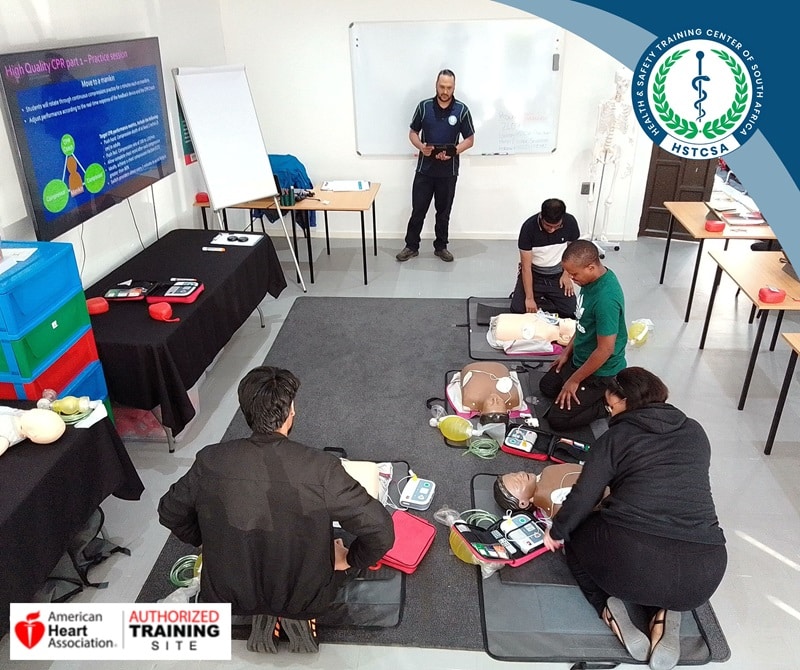
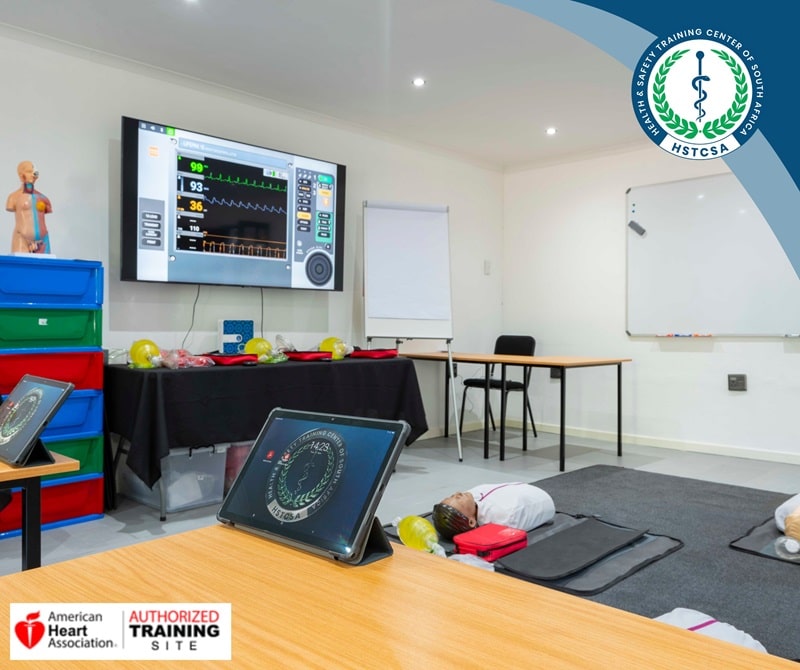
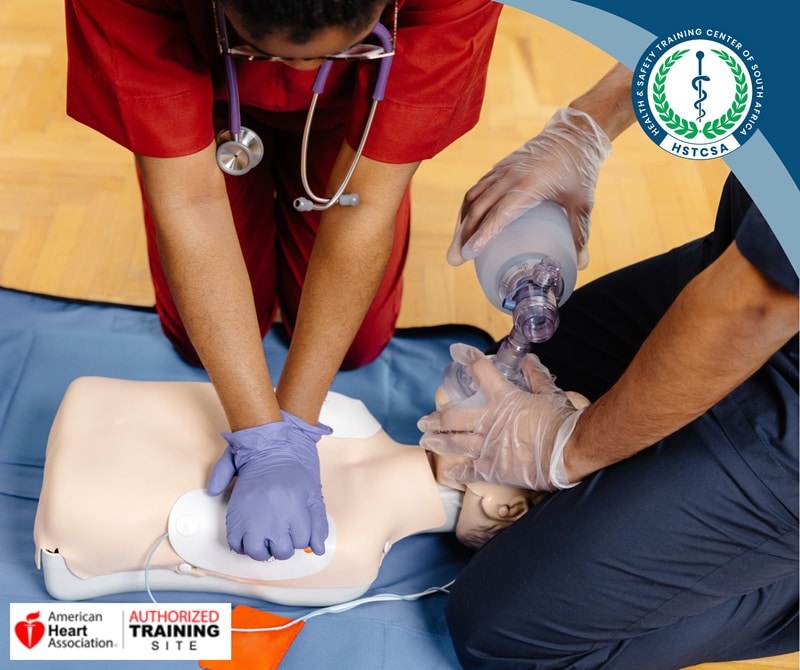
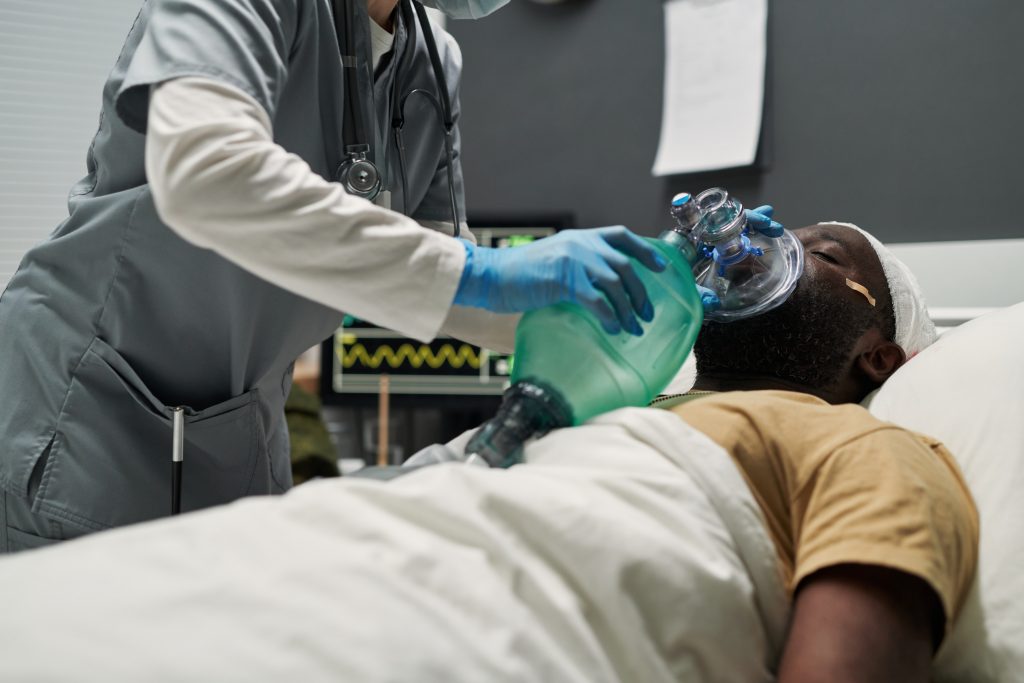

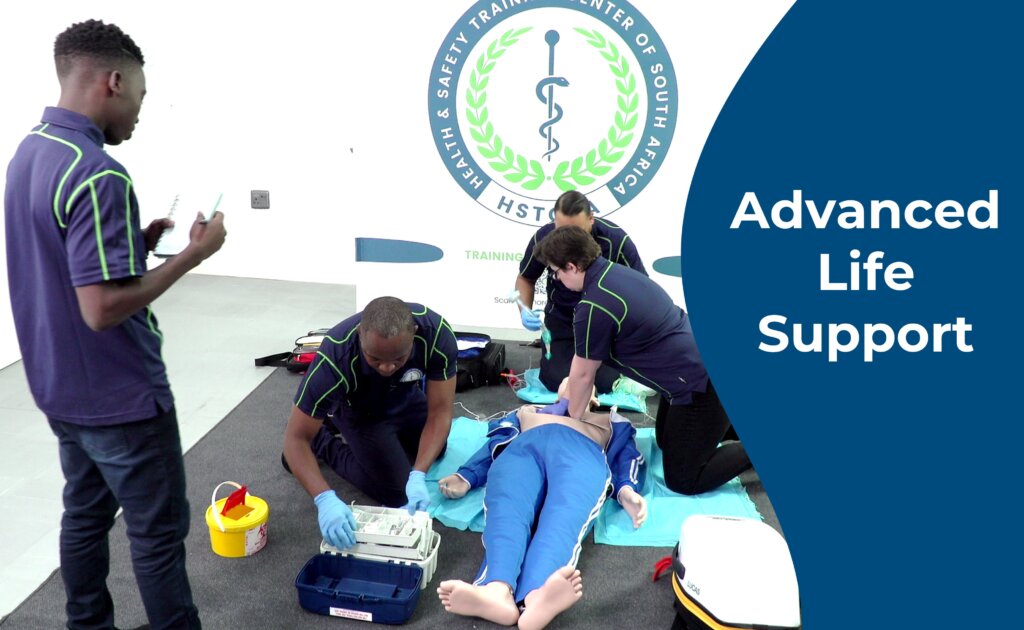


Responses